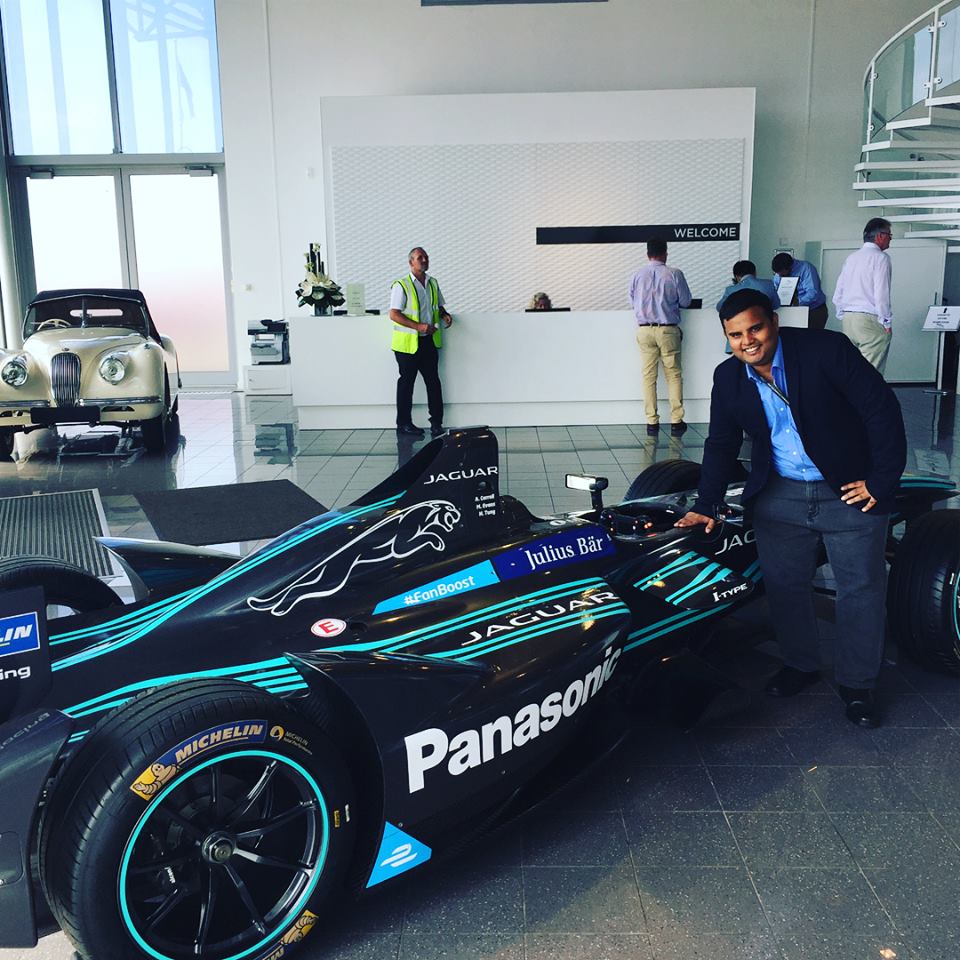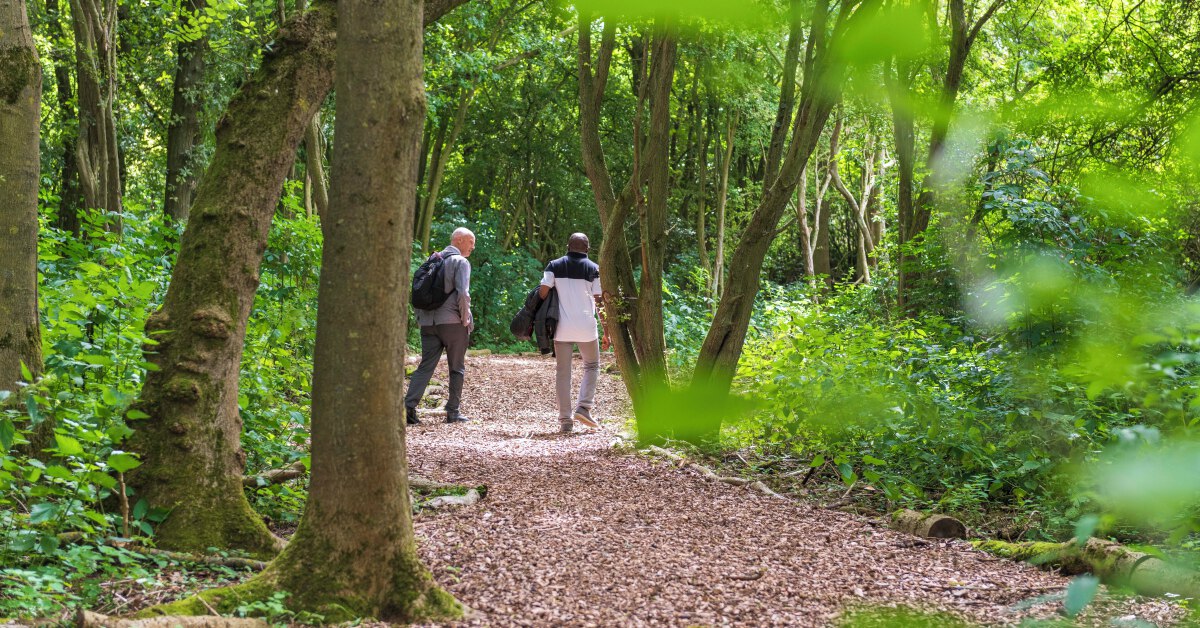My Master’s in Management internship project with Jaguar Land Rover
20/09/2017

What is the organisational culture like?
In this Management MSc Jaguar Land Rover internship project, I have learnt how Jaguar Land Rover built the iconic British brand through innovation. In a big organisation like Jaguar Land Rover, I realise the need to be self-driven to achieve results. Besides, I’ve found that the organisation is open to different ideas like disruptive innovation to stand out from its competitors.
What has been the biggest challenge?
Since the project is a campus-based project, the biggest challenge was defining the scope of the project. That is why both my academic and company supervisor’s input were extremely crucial at the start of the project. It is about learning how to manage my time since it is campus-based. When I organised my time, I used a calendar and recorded milestones achieved for the project. I believe it is important to derive satisfaction when you complete the necessary work. Another challenge is that I had to be creative and innovative in sourcing contacts for my projects in terms of coordinating interviews with individuals who were relevant to my project.
How are decisions made?
Decisions about the project are usually made with my academic supervisor. From time to time, there are meetings with my company supervisor to inform him of what I have done so far and how we can take it from there.
How do teams work within the organisation?
Though I haven’t had the opportunity to work with the team from Jaguar Land Rover directly, I had the opportunity to visit Jaguar Land Rover’s site at Castle Bromwich which allowed me to see a Jaguar being manufactured right in front of my eyes. I observed that the teams within Jaguar Land Rover were very efficient in the way they went about their daily operations.
What have you learnt?
I have learnt a lot of important values like time management, being responsible and networking among others. Besides, I have gained a lot of knowledge on disruptive innovation and particularly autonomous vehicles which are pursued by most car manufacturers in the market.
What do you think are the benefits of internships in a large/small organisation?
Internships enable students to work on industry projects which can make a difference to the company. It is also a great opportunity to grow your contacts within the company. The knowledge I gained from carrying out such a project will help me when I graduate from Cranfield.
How have you found your year at Cranfield?
I have found my year at Cranfield a rewarding one. I have enjoyed working with my classmates from different parts of the world. The friendships and knowledge I have gained so far are what makes Cranfield so special. The faculty are good at conveying the knowledge to us. I always wanted to study my master’s at Cranfield, so this year is a dream come true for me.
What has been the best experience of your Master’s course?
My best experience was the trip to Granada where we studied our elective module in Effective Cross-Cultural Management. It gave me a good insight into how we can manage different cultures in a work environment, wherever we end up working! I really liked the debates during the sessions as we certainly learnt a lot of new cultural ideas when people told the group about their culture. Visiting the Alhambra was great as we all enjoyed the visit. Another experience was the Organisational Behaviour module where we were visited by Singapore Management University MBA students. It was great to learn new ideas and learning was so fun when we did the Harvard Everest Challenge. I learnt skills like communication and team work whilst having so much fun!!

Why do you think the internship is important?
I think the internship is important as it equips students with the necessary skillset for the workplace. The internship allows us as students to put knowledge into action which is extremely interesting. This expands our horizons as a result.
What skills from the MSc have you applied during your internship so far?
I think the internship has allowed me to use my analytical and problem-solving skills at all times. I have also used my negotiation skills in getting the information I need at times.
What are your aims and goals for the future? How do you think your time at Cranfield will help you achieve those?
My immediate priority is to find a job either in UK or Singapore. However, I still have plans for a PhD in the future if finances and everything falls into place. My time at Cranfield has been a good foundation for the academic world. The year at Cranfield has certainly prepared me for the workplace.
—
Find out more about the Cranfield Master’s in Management…
Categories & Tags:
Leave a comment on this post:
You might also like…
How do I write a secondary reference … in the NLM style?
Secondary referencing is used when you’re reading a work which includes a quotation from another author, and you – the researcher – can’t obtain the original source. We always advise, where possible, to try to ...
Reaching new heights: How a Global Excellence Scholarship fuelled my aerospace dreams
Leaving my home in India to pursue an MSc in Aerospace Dynamics at Cranfield University was a leap of faith. Hi, I’m Oliza Kachroo and as an international student, the transition ...
How do I reference…when delivering a presentation?
Just as you cite and reference sources in written work, you should also acknowledge the sources you use or quote in oral presentations. Citing your sources in presentations provides your audience with information about the ...
How do I reference a blog post… in the NLM style?
Whilst blog posts do not fall into the scholarly material category, they can be useful for providing personal insights into a particular area. For example, there may be a high-profile member of an industry who ...
From nature walks to neural networks: My journey in Applied AI at Cranfield
Hi, I’m Ebru K and choosing a postgraduate degree is about more than just picking a subject; it’s about choosing where your future begins. As an international student from Turkey, I ...
Leading With Heart: My Journey as Cranfield Student Association President by Summer Yan
When I first arrived at Cranfield, I had no idea that one year later I would be standing at the heart of our student community, serving as President of the Cranfield Student Association (CSA). ...





